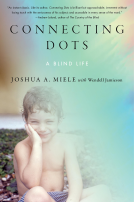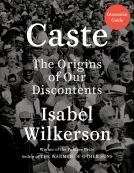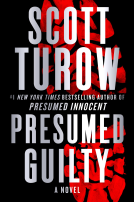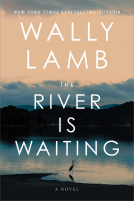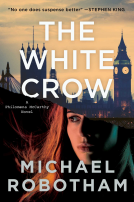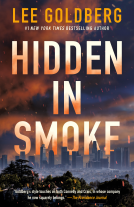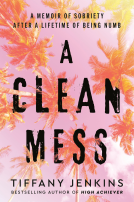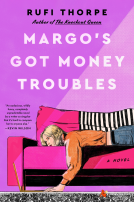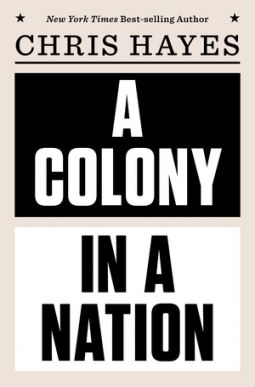
A Colony in a Nation
by Chris Hayes
This title was previously available on NetGalley and is now archived.
Send NetGalley books directly to your Kindle or Kindle app
1
To read on a Kindle or Kindle app, please add kindle@netgalley.com as an approved email address to receive files in your Amazon account. Click here for step-by-step instructions.
2
Also find your Kindle email address within your Amazon account, and enter it here.
Pub Date Mar 21 2017 | Archive Date Mar 31 2017
Description
A Note From the Publisher
LibraryReads nominations due by 1/20/17.
Advance Praise
“A Colony in a Nation is a highly original analysis of America’s arbitrary and erratic criminal justice system. Indeed, by Hayes lights, the system is not erratic at all—it treats one group of Americans as citizens, and another as the colonized. This is an essential and ground-breaking text in the effort to understand how American criminal justice went so badly awry.”—Ta-Nehisi Coates, author of Between the World and Me
"A timely and impassioned argument for social justice." - Kirkus
Available Editions
| EDITION | Other Format |
| ISBN | 9780393254228 |
| PRICE | $26.95 (USD) |
| PAGES | 272 |
Links
Featured Reviews
 Angela R, Librarian
Angela R, Librarian
This was an amazing read. It's horrifying and depressing, but also enlightening and necessary. I know this will stick with me for a long time (I finished it late last night, and this morning, I've woken up thinking about it), and the questions it raises are so apt for a Chicagoan. Any American, of course, but as a Chicagoan it really hits home.
I almost feel like I need to read this again, just to really take it all in.
Thanks to NetGalley and the publisher for the ARC.
 Stephanie T, Librarian
Stephanie T, Librarian
Having both watched him for a few years on MSNBC and having read his work in The Nation, I love Chris Hayes, His earlier book Twilight of the Elites (called “a stunning polemic by Ta-Nehisi Coates), emphasized how out of touch America’s political leaders were with those they were elected to govern (and this was in 2012!). In his new book, he takes the experiences he has had reporting from places like Ferguson and West Baltimore and combines it with his outstanding knowledge of U.S. history and concludes that our country has broken into two distinct factions: the Colony and the Nation.
As he examines the issues and events in Ferguson, West Baltimore and other places where racially-motivated crime and violence have been in the news in recent years, he contends that the conditions in these cities and towns mirror those that sparked the American Revolution. Along the way, he examines the political, economic and social conditions in both eras.
He explains that despite our wish to live in a “post-racial” world, the situation that exists in “the Colony” looks very much like a police state, where aggressive policing makes the police look like an occupying force and fear is paramount.
He points out that our country imprisons a higher percentage of its citizens than any other county, except the archipelago of Seychelles, with “nearly one out of four prisoners in the world …an American,” although we have only 5% of the world’s population. And “American criminal justice isn’t one system with massive racial disparities but two distinct regimes. One (the Nation) is the kind of policing regime you expect in a democracy; the other (the Colony) is the kind you expect in an occupied land.” Ouch!!
He examines the end of Jim Crow and the change that happened in the 1960s is a time when some believe “it was reconceived and reborn through mass incarcerations” – for me, this was unsettling to read. In Ferguson, Hayes believes “…the police had taken on the role of enforcing an unannounced but very real form of segregation in the St. Louis suburb.” Further, he says our “post-civil-rights social order …gave up on desegregation as a guiding mission and accepted a country of de facto segregation between “nice neighborhoods” and “rough neighborhoods,” “good schools” and “bad schools,” “inner cities” and “bedroom communities.””
To his credit, he in unflinching as he presents his self-analysis of his own privilege as he lives the “the Nation,” and explains “None of this came about by accident. It was the result of accumulation of policy, from federal housing guidelines and realtor practices to the decisions of tens of thousands of school boards and town councils and homeowners’ associations essential drawing boundaries: the Nation on one side, the Colony on the other,” And, as in the case of Sandra Bland, “In the Colony, violence looms, and failure to comply can be fatal.” And he points out that this is not so in The Nation.
Many of us are currently pondering how the hell our country got to the point where it is today. This book doesn’t have all the answers, but it is eye-opening, well researched, easy to read and comprehend, and reveals Hayes’s intelligence as well as his compassion and desire for change. It comes at a good time for anyone wanting to have some awareness of how we got to where we are, and I highly recommend it. Five stars.
 Laurie M, Reviewer
Laurie M, Reviewer
Thanks to Net Galley, I was able to read this fascinating new book by MSNBC anchor, Chris Hayes. Hayes writes a scholarly yet engrossing new book looking at the various nuances of law and the explication of so-called 'order' in today's America. Borrowing the quote from Richard Nixon for his title, he explores the great divide in our country between the disenfranchised of our nation who still live as if in a separate colony, while the privileged 'nation' attempts to maintain the status quo. While he focuses on people of color, poverty and the inequities of the educational system also play a role. It begins in Ferguson, where Hayes was on the ground reporting the aftermath of the shooting of a young black man, Michael Brown. His insight into the past history not only of Ferguson, but also the surrounding areas, highlights information that is pivotal to the understanding of the Black Lives Matter movement. American history is used to inform the reader of past practices in law enforcement: the fall out of tariffs all the way to revolutionary times, the statistics of stop-and-frisk, the community policing movement, the 'broken windows' policy, and many more. Hayes also fully embraces his own white privilege and his Ivy-league background, honestly and provocatively displaying his own prejudices and forcing the reader to look in his or her own mirror. This is not a book for the reader who wants a fast, thrilling mystery, but it is a book for our time, a book we should all read, a book that will not only make you smarter, but will force you to ask questions of yourself and the rules of society. Do we want order or do we want to be safe?
 Karen M, Reviewer
Karen M, Reviewer
COLONY IN A NATION BY CHRISTOPHER L HAYES
I am so glad I read this book. It is relevant and an important to the current events happening today in our Democracy. I feel like the author raises important issues. I think it makes and illuminates how there is still racial inequalities in certain states. I feel like every police officer and cruiser should be mandated by federal law to have a camera on their body and on their cars. They should be made to have dashboard cameras. Police brutality is on the rise and there have been too many instances where their is an abuse of power. I have read about and seen corruption in the way the laws are enforced with people of different ethnicity other then white. I also think that people that live at the poverty level do not have the resources to a fair trial. Many innocent people are sent to prison because they lack the ability to pay thousands of dollars for attorneys fees. Ask yourself this question: Who do you think a judge is going to believe when it comes to being wrongly accused of committing a crime?. You or the police officer?
This book was on my wishlist. Many huge thanks to the Publisher for granting me my wish. It was an honor to read an early copy and review this book. Many huge thanks to Christopher L. Hayes for writing such a timely important book and for granting me my wish. Thank you to Net Galley for my digital copy for a fair and honest review.
Readers who liked this book also liked:
Sara T. Behrman
Children's Fiction, Outdoors & Nature, Parenting & Families
Jodi Picoult; Jennifer Finney Boylan
General Fiction (Adult), Literary Fiction, Women's Fiction
